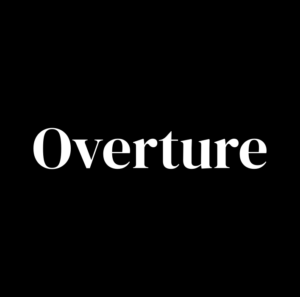Adobe Will Update Terms Of Service Agreement After Customers Who Actually Read That Long Document Express Concerns About AI And Privacy
Software developers like Adobe should think about other ways to get its users to read and understand its ToS agreements and similar documents.
 Most people presented with a long, boilerplate contract will simply sign it without reading because they have to in order to get a loan or use their new game console. Even esteemed former federal judge Richard Posner admitted back in 2010 that he signed a 100-page home equity loan agreement without reading it.
Most people presented with a long, boilerplate contract will simply sign it without reading because they have to in order to get a loan or use their new game console. Even esteemed former federal judge Richard Posner admitted back in 2010 that he signed a 100-page home equity loan agreement without reading it.
But some people on the internet actually read one of these contracts and caused an uproar. The outrage led to multiple users cancelling their subscriptions and looking for substitutes.
Last week, Adobe, the creator of the well-known image altering software Photoshop, announced changes to its Terms of Service (ToS) agreement, which governs how people can use its software. Users are required to agree to the new terms before they can continue using their Adobe software.

How Savvy Lawyers Build Their Law Firm Rate Sheet
They were particularly upset over two provisions in the ToS agreement. One describes how Adobe accesses users’ content. The other informs users that may be licensing their content to Adobe to use as they see fit.
The provisions are as follows:
2.2 Our Access to Your Content. We may access, view, or listen to your Content through both automated and manual methods, but only in limited ways, and only as permitted by law. For example, in order to provide the Services and Software, we may need to access, view, or listen to your Content to (A) respond to Feedback or support requests; (B) detect, prevent, or otherwise address fraud, security, legal, or technical issues; and (C) enforce the Terms. Our automated systems may analyze your Content and Creative Cloud Customer Fonts using techniques such as machine learning in order to improve our Services and Software and the user experience.
4.2 Licenses to Your Content. Solely for the purposes of operating or improving the Services and Software, you grant us a non-exclusive, worldwide, royalty-free sublicensable, license, to use, reproduce, publicly display, distribute, modify, create derivative works based on, publicly perform, and translate the Content. For example, we may sublicense our right to the Content to our service providers or to other users to allow the Services and Software to operate as intended, such as enabling you to share photos with others.
Adobe defines the word “content” on section 4.1 of the ToS Agreement:
Sponsored

Law Firms Now Have A Choice In Their Document Comparison Software

Referral Fees The Key To Growing A Modern Practice? Overture Thinks So.

How Savvy Lawyers Build Their Law Firm Rate Sheet

Referral Fees The Key To Growing A Modern Practice? Overture Thinks So.
“Content” means any text, information, communication, or material, such as audio files, video files, electronic documents, or images, that you upload, import into, embed for use by, or create using the Services and Software (emphasis added).
People wondered exactly how Adobe will access users’ content. Most suspected the company will be able to access their files stored in the Adobe Cloud service. But will Adobe have access to files stored in their local computers? Does this mean they will engage in content moderation even on users’ own computers?
The license language in section 4.2 is very broad and gives the impression that Adobe can do whatever it wants with users’ content. There was also speculation that Adobe may be using users’ content to train its creative artificial intelligence program known as Firefly.
This might be problematic for lawyers or law enforcement agencies that use Adobe software for copyright infringement, child exploitation, or celebrity impersonation cases as they have to upload copyright protected or objectionable images as part of their work. While a human review will immediately correct any false positives, having legitimate accounts frozen or banned while doing their jobs could result in institutional customers going elsewhere.
On June 6, Adobe published a blog post in an attempt to clarify its ToS. It stated that Adobe will access files to perform the functions they are designed for, deliver cloud-based features, and most importantly, use technologies and other processes (including human review) to screen for illegal content (such as CSAM) and phishing scams. It also stated that users’ content will not be used to train Firefly and that Adobe will never assume ownership of a customer’s work.
Sponsored

Raising The Bar in Bar Prep

Trust The Process: How To Build And Manage Workflows In Law Firms
On June 10, it issued another blog post announcing that it will issue an updated ToS agreement by June 18 promising to use plain and more precise language, and limited to only the activities they need to do now and in the immediate future.
All parties involved should be applauded for what happened. Someone actually read and digested the new ToS agreement, a group of users addressed their concerns to Adobe, and now Adobe is working to update its ToS agreement, even though the objectionable language has likely been there for many years. This will likely take a group effort as an individual complaint probably won’t be taken seriously.
The new ToS agreement should incorporate all of the issues addressed in Adobe’s blog posts in June. Otherwise, the posts may not be part of the contract and may not be admissible in court due to the parol evidence rule.
But in the final analysis, software developers like Adobe should think about other ways to get its users to read and understand its ToS agreements and similar documents such as End User License Agreements and privacy policies. It does not help that people have to read these contracts after they purchased it. And since they opened the packaging, their purchase is likely to be nonrefundable from the store they bought it from.
Until that day comes, lawyers should read and summarize these long ToS agreements and post them on their firms websites.
Steven Chung is a tax attorney in Los Angeles, California. He helps people with basic tax planning and resolve tax disputes. He is also sympathetic to people with large student loans. He can be reached via email at stevenchungatl@gmail.com. Or you can connect with him on Twitter (@stevenchung) and connect with him on LinkedIn.








